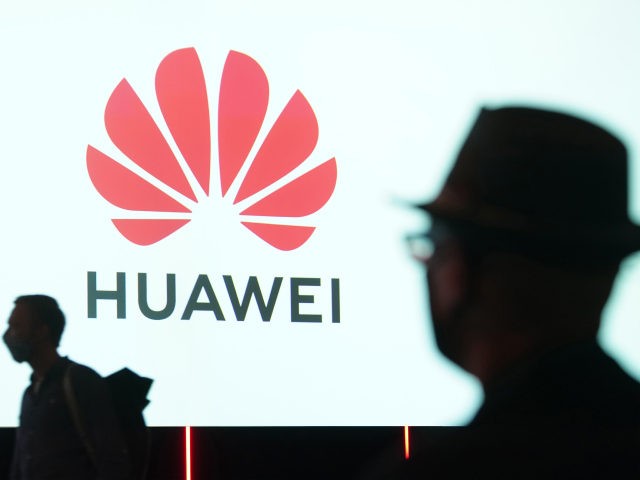The Communist Party’s State Telecommunications Company of Cuba (ETECSA) relied on technology from Chinese mega-firms such as Huawei and ZTE to shut down nationwide access to the internet following protests on July 11, multiple reports concluded this week.
The Spanish outlet Diario de Cuba noted, heavily citing an investigation published this week by the Asian affairs site The Diplomat, that Huawei has been operating in the communist country since at least 2000, when it agreed to a contract to build a fiber optic network on the island. Huawei has increasingly expanded its footprint in Cuba, with the Communist Party’s blessing, in the mobile phone industry, while other Chinese firms with close ties to the regime there like ZTE and TP-Link have also established a growing role in granting Cuban citizens access to the internet.
The internet played a pivotal role in the July 11 protests, believed to be the largest on the island since the “Black Spring” crackdown against pro-democracy dissidents in 2003. According to the Cuban Conflict Observatory (OCC), an NGO that tracks the scope and intensity of political opposition on the island, 187,000 people participated in protests in Cuba throughout July, the vast majority stepping out to join marches and rallies calling for the end of the communist regime on July 11. The protests were overwhelmingly peaceful despite their size and presence in, according to some estimates, as many as 40 people on the island. Participants used the internet – particularly access to social media – to encourage others to take the streets and inform each other about protest meeting points.
Protesters also relied on social media to spread videos and images of the disproportionate use of violence on behalf of Cuban police and other state security forces against unarmed and peaceful dissidents. In the immediate aftermath of the beginning of the protests, the videos showed both the sheer number of people on the street and outrageous uses of police force – such as opening fire on crowds of unarmed protesters and shooting suspected protesters in their homes in front of their children.
Shortly after Castro figurehead Miguel Díaz-Canel issued an “order of combat” demanding civilians engage in violence against the protesters, ETECSA abruptly cut internet access on nearly the entirety of the island. Cubans have since been subsisting using VPNs and intermittent ETECSA access that has returned only in the past week.
Without Chinese technology, The Diplomat report contended, such a pervasive internet blackout would not be possible.
“Chinese companies have played a key part in building Cuba’s telecommunications infrastructure, a system the regime uses to control its people, just as the Chinese Communist Party (CCP) does within its own borders,” the outlet observed. “The primary technology providers for Etecsa, Cuba’s sole internet access company, are all Chinese: Huawei, TP-Link, and ZTE.”
Huawei, in particular, helps Cuba control what websites Cubans on the island can access. As, according to a U.S. State Department report from 2019, Huawei also controls much of the island’s Wi-Fi access – which many Cubans use through their Huawei mobile phones – it is among the top culprits for aiding Cuba in silencing its people online.
“China dominates Cuba’s telecommunication sector and provides a challenge to U.S. firms looking to enter the sector,” the State Department noted at the time. “China played a major role in financing and constructing Cuba’s ALBA-1 undersea cable and Huawei Technologies, a Chinese telecommunications company, was involved in developing Cuba’s backbone network as well as installing Wi-Fi hotspots across the island.”
China largely controls the Cuban telecommunications market without competition, in part because limits on American companies exist in doing business with the repressive communist regime in Cuba (similar restrictions do not exist regarding China, despite both nations running on the same political system). The Chinese Communist Party publicly complains about these restrictions regularly, using state media to claim that the “embargo” significantly damages the Cuban economy. Evidence suggests, however, that even without an “embargo” the Castro regime would not allow American companies to compete fairly.
In 2015, at the height of President Barack Obama’s “thaw” policy granting economic and political concessions to the Castro regime, Google reportedly attempted to enter negotiations to build telecommunications infrastructure in Cuba. Google spent years attempting to convince both sides of the Straits of Florida to allow it to work in Cuba; on one occasion, CEO Eric Schmidt visited Cuba alongside former Republican senator Jeff Flake seeking to cut a deal with Díaz-Canel. Even during the Obama, era, however, experts considered such a deal unlikely because of the overwhelming presence of Chinese companies there in the field already.
“I don’t see them using Google if they have a Chinese option,” Baruch College professor Ted Henken told CNBC in 2015. Internet access at the time in Cuba was far more limited, typically reserved for the Castroite elite, than it was immediately before the July 11 blackout.
China issued effusive statements of support for the Castro regime in the aftermath of last month’s demonstrations.
“China firmly opposes foreign interference in Cuba’s internal affairs, firmly supports what Cuba has done in fighting COVID-19 [Chinese coronavirus], improving people’s livelihood and upholding social stability,” Chinese Foreign Ministry spokesman Zhao Lijian said the week after, “and firmly supports Cuba in exploring a development path suited to its national conditions.”
Zhao appeared to be referencing false leftist claims that the protests were a reaction to Cuba’s extremely poor handling of the pandemic and not a call for regime change.
“I’d like to stress that China stands ready to work with Cuba to implement the important consensus of the two heads of state and is firmly committed to deepening friendly relations between the two countries,” Zhao added, without elaborating.
China has been Cuba’s largest trade partner since at least 2017.

COMMENTS
Please let us know if you're having issues with commenting.